Exactly 40 years ago, February 11, 1981, in Poland there was nothing like a noteworthy event: the Prime Minister was changed. Silovik, Minister of National Defense Woolesh Yarzhelsky became the new chairman of the Council. Ahead of the country was waiting for an unprecedented twist of nuts, martial law, focusing in the hands of the power sector of all power in the country and almost a decade of opposition to power and civil society. 42.tut.by about these events.
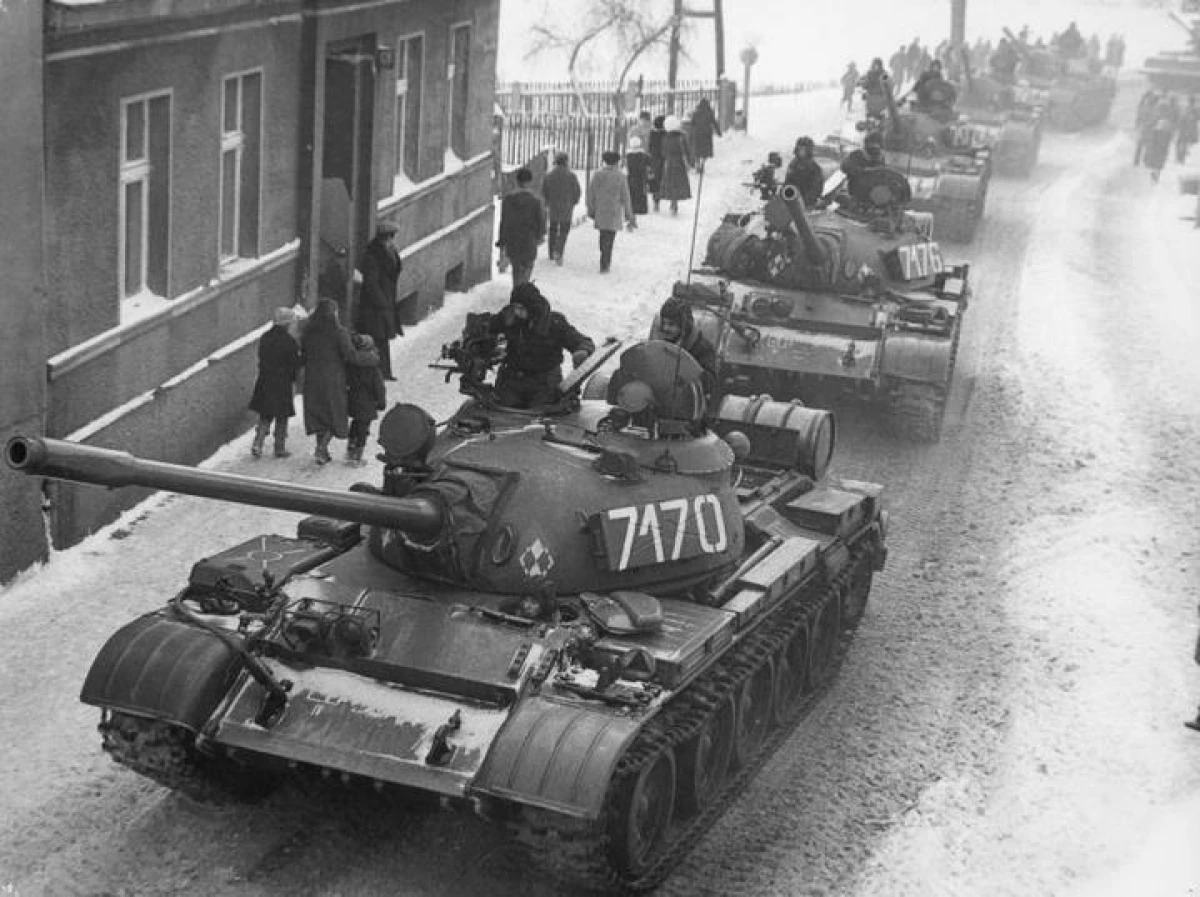
Poland in the seventies: golden age and debts
The seventies became the same golden age for the Polish People's Republic. The Company felt its strength: mass protests of workers on the Baltic coast, although power and decided then to shoot the people, brought to the heart attack and resignation of the conservative leader of the PPP (analogue of the CPSU in Poland) Vladislav Gomulka. His place was taken by the liberal Edward Herose.The government slightly released the entrance, and the "thaw" and the flowering of culture began in Poland. Angey Waida and Kshyshtof Zanyssy, Daniel Olbrykh and Barbara Brylsk were shot, Anna Hermann sang and Anna Yarter. The Warsaw Brewery lined the first in the Soviet block of Coca-Cola, and Poland as a whole received ironic nickname "of the merry barrack in the socialist". Moscow did not obstruct: the seventies were a period of "discharge" with the West, and the power to interfere with the satellites after the suppression of the "Prague Spring" in 1968, Brezhnev did not strive.
But the case in the economy of Poland did not matter. Industrial facilities were obedient, the country needed technological re-equipment - and the money for this, the leadership of the PPP decided to take in the West, and not the allies in Socil Block. The Economy of PNP literally flooded with credit money: they expected that soon all the debts would be able to give due to increased profits.
However, the decade has ended, the debt has achieved astronomical values of $ 20 billion, and the profits did not appear: due to corruption, voluntary and amateur solutions, the modernization of the "top" economy failed. Money invested in the economy as if melted without bringing the desired improvement.
It was not necessary to count the western countries to write credits: they themselves were hard in the face of the oil crisis. The Soviet Union is also not eager to save the Polish economy. As a result, by the end of the 70s, the "golden age" is very sudden and completely naturally ended, Poland was on the verge of economic collapse.
The shelves were empty in stores, everything that could be exported was exported, prices grew (which was an absolute nonsense with a planned economy). Workers rose again to protests. Shooting them has not yet been accelerated, but activists were pursued, dismissed, and point repressions in the second half of the seventies became the norm. In response, the intelligentsia has created a Human Rights Protection Committee or Kor (Komitet Obrony Robotników).
Strike and Solidarity
The sign date was July 1, 1980 - on this day the government centrally increased meat prices. The workers did not bear: first they broke out the protests in Lublin, then their center moved to Gdansk: there, with the assistance of Kor, an inter-wave strike committee was created led by the electrician of the shipyard of Lech Valence. The number of strikers was calculated by hundreds of thousands, in history these events were included as the Polish August. This time the intelligentsia and workers acted together.
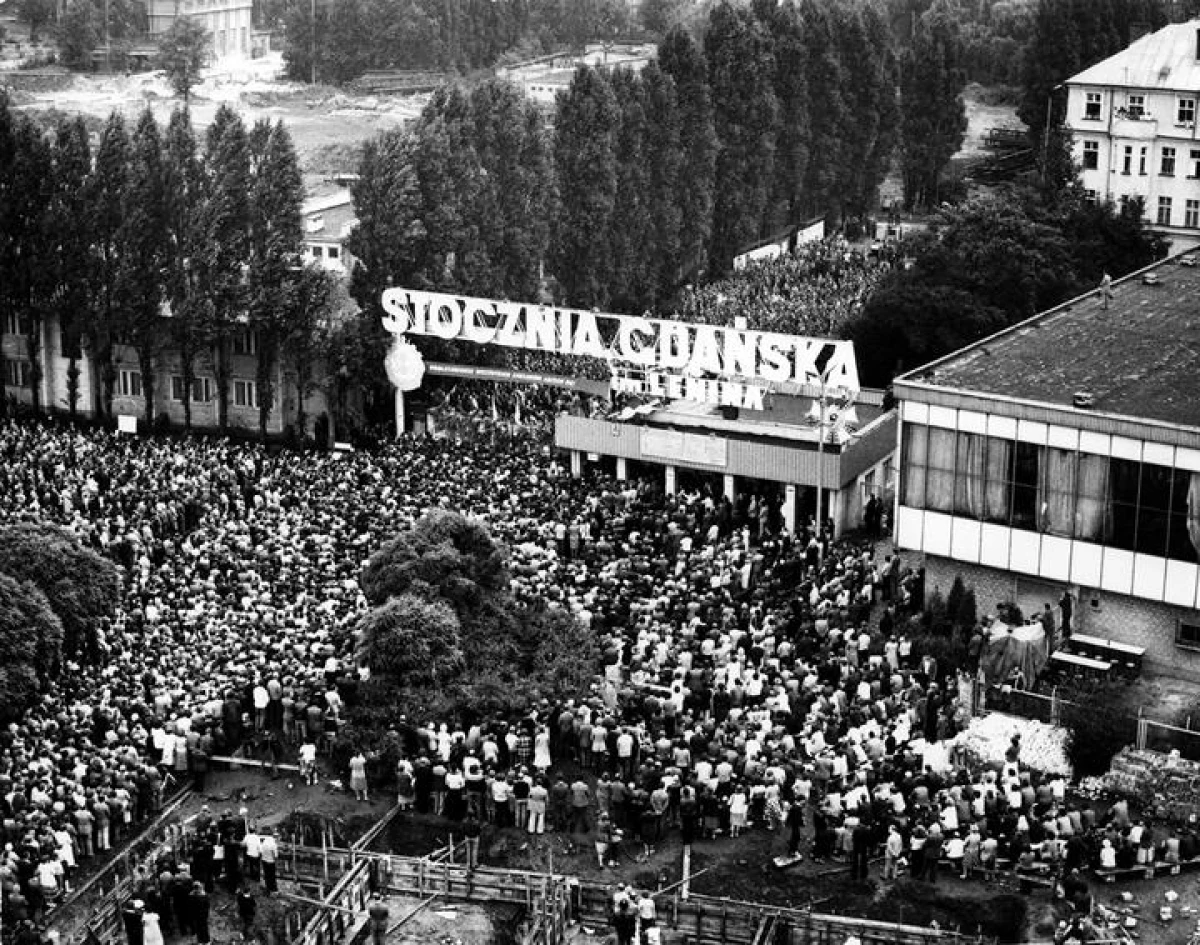
The strike committee and Kor jointly developed 21 demanding workers to the authorities - mainly economic - up to the introduction of grocery cards on meat. At the same time, independent trade unions demanded, and the legal right to strike, and reliable information on the socio-economic situation of the country, and participation in the discussion of the necessary reforms.
The key to independent trade unions was key: already on September 17, Polish strike committees proclaimed their association - an independent self-governing trade union "Solidarity", which subsequently became legendary. The Poles instantly "voted their feet": seven million people (fifth of the population) were recorded in a new trade union in a couple of months), of which Million Communists (third PPP). Lech Valens became the chairman. November 10, the trade union became legal.
PNP PNP Stormilo. "Liberal" circles, headed by the rapidly losing power, the gears were not solved to apply force against the working mass, Stalinist "party concrete" (the old Guard Porp) did not want to go for any concessions.
The domineering "pendulum" for August-September was shot several times, and as a result, the situation was created by a dual: on the one hand, the PPP leadership recognized fairly some of the requirements of the workers (first of all, the creation of independent trade unions, which led to the creation of "solidarity"), with Another - Edward Herlek was resigned, replacing Kanya on a more rigid Stanislav. The latter did not belong to the "party concrete", representing a figure rather a compromise, ready to act and whip, and a gingerbread. However, it was quite obvious that the reaction period will soon begin. And he began.
The problems of the authorities were the more serious that it was unclear, which position would take the army - the loyalty of the troops was not guaranteed. That is why in August in August, the first conversations began about the possible introduction of Soviet troops to Poland. The USSR could not lose to the Polish Satellite of the USSR: there was no connection with the strongest group of Soviet troops in Germany, there was a risk of loss of control over the main oil "pipe" (and the export of oil for the Union was critical from the mid-seventies).
Nevertheless, a full-scale intervention for Moscow at that time was rather unwanted, if not at all inepening: the country was even deeper in the Afghan war, and at the "second front" of the Union's leadership to allocate resources to the desire did not burn. In the USSR, a sad poem was born:
Pany and Pani,
Listen to Kanya,
And then the Vanya will come
And it will be like in Afghanistan ...
However, the legalization of "solidarity" and the explosive growth of its number was increasingly annoyed by the party leadership of the Soviet bloc and "concrete" of the PPP. Representatives of the "old guard" of the party, an independent trade union, as a bone in the throat, and the concessions to him in the summer-inquiry parties perceived as painful, but temporary defeat.
Pan Yarazelsky
In the conditions of the Cold War of the reformers and the conservative wings on February 11, 1981, the Chairman of the Council of Ministers of the Poland, the head of the defense department (at the same time, he left the minister of national defense). The appointment at an important secret of the security fork was not particularly alerted: the army used in society a good authority and all dismantum focused on the PPP. On the contrary, a person who does not belong to the "concrete" seemed not to the worst prime minister with whom you can do business.
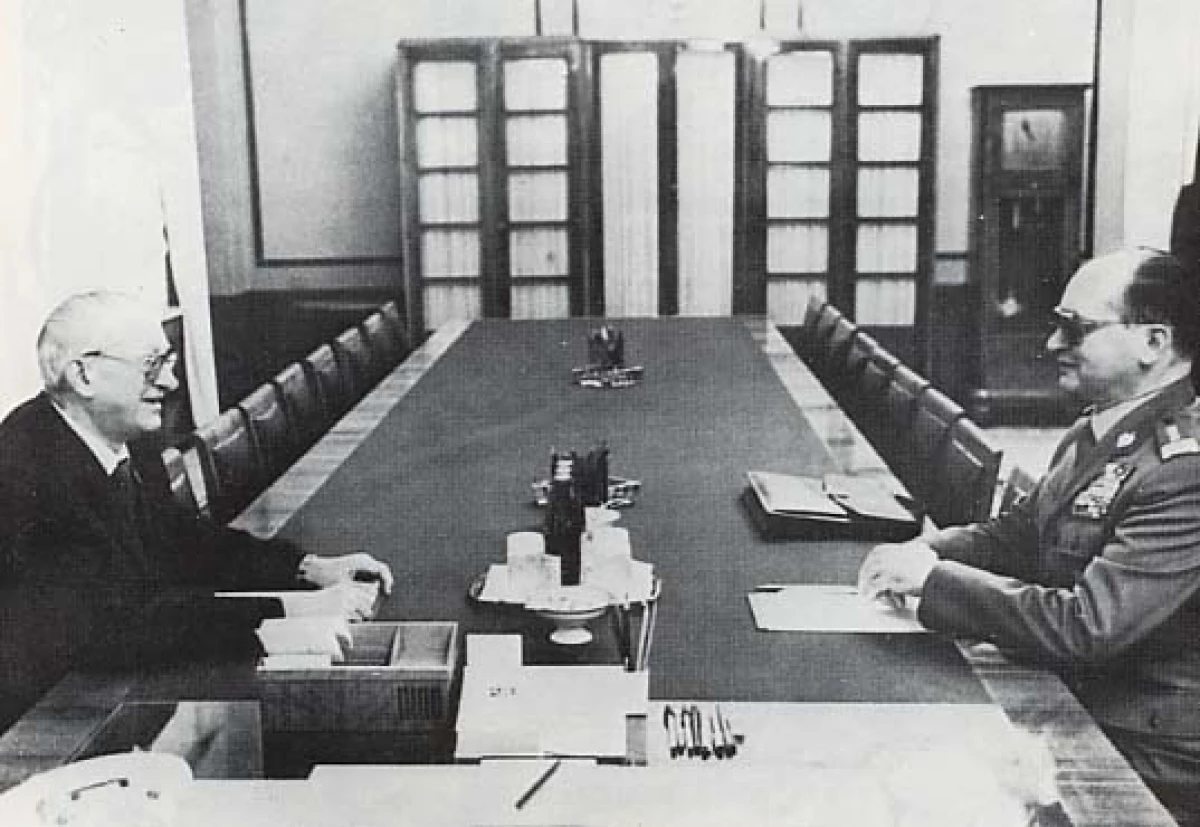
However, the public in Yarazelsky was mistaken. Yes, he did not have a solid party past, being all his life associated with the army. The descendant of the Shantehetsky kind, he moved to Lithuania to Lithuania at the age of 16, from where the republic to the USSR joined the Siberian reference right. I buried the father there, damaged the cornea of the eye on the forestshop (which would have been dark glasses), but during the Second World War I was able to join Polish parts formed in the USSR. In the War, Yarazelsky passed with the troops to the Elbe itself, and then continued his military career.
At the end of the sixties, Yarzelsky, being already a minister of national defense, received the first experience of entering troops to save an ally from reforms: 24 thousand Poles participated in the suppression of the "Prague Spring". Two years later, Polish soldiers from the knowledge of Yarazelsky participated in the acceleration of working protests on the Baltic coast - then 46 people died. So apply the power to the new premiere was, in general, not the first. Moreover, it was not possible to compromise between "solidarity" and the authorities: the first prepared new strikes, the second after the first concessions were prevented and did not want any reform. Parallel Poland became even poorer, we remember that the country balanced on the verge of bankruptcy, and in the first half of 1981 due to the crisis, the Polish national income fell by 15%.
The economic measures that the Government offered to solve the problem in the conditions of mass protests, were not very original: to avoid deficit, YARRAELSKISSKY offered even more to raise food prices and fuel. Parallelly scared an anarchy, which allegedly hides behind the requirements of democratic transformations, and said that "the people's power cannot be given, the power of the socialist state, and it will not be given."
During 1981, the PPP leadership gradually increasingly inclined to the powerful version: the activities of "solidarity" annoyed the authorities more and more, and its demand for economic and political reforms (including self-government in enterprises and free elections in the Sejm) directly threatened the monopoly of Polish Communists to manage the country.
At that time, by the way, the question of the Soviet intervention has almost not stood already: against, for example, there was a "gray cardinal" Politburo Mikhail Suslov, the second face in the state (seriously sick Brezhnev also did not rush to introduce troops). True, the public domain, the rejection of the invasion became much later.
For December, Solidarity has planned mass demonstrations on the anniversary of the reprisal of protesters in 1970. And here Yarzelsky, who focused on the time all the power in the country (October 18, he replaced Kanya at the post of first secretary of the PPP) struck: a martial law was introduced in the country. On December 12, all the Voivodes (regional) Commandants of the police received envelopes that were stored in the safes from March - that is, put there in just a month after the appointment of Wojcaja by the Prime Minister.
In the envelopes contained instructions: to take control of all means of communication, radio, television, to intervat all activists of "solidarity", which will be able to reach. In custody turned out to be Valens, most of the manual of the trade union, and for some reason, the former first secretary of Porp Edward Herose. The government closed the borders, forbidden all public organizations, the issue of absolutely all media.
The introduction of a military situation has become the largest police operation in the 20th century: only 10 thousand people involved the Zomo staff (then Polish riot police). And 250 thousand military at several thousand tanks and armored personnel carriers. It was simultaneously delayed about five thousand people, soon it was added to them as much as much.
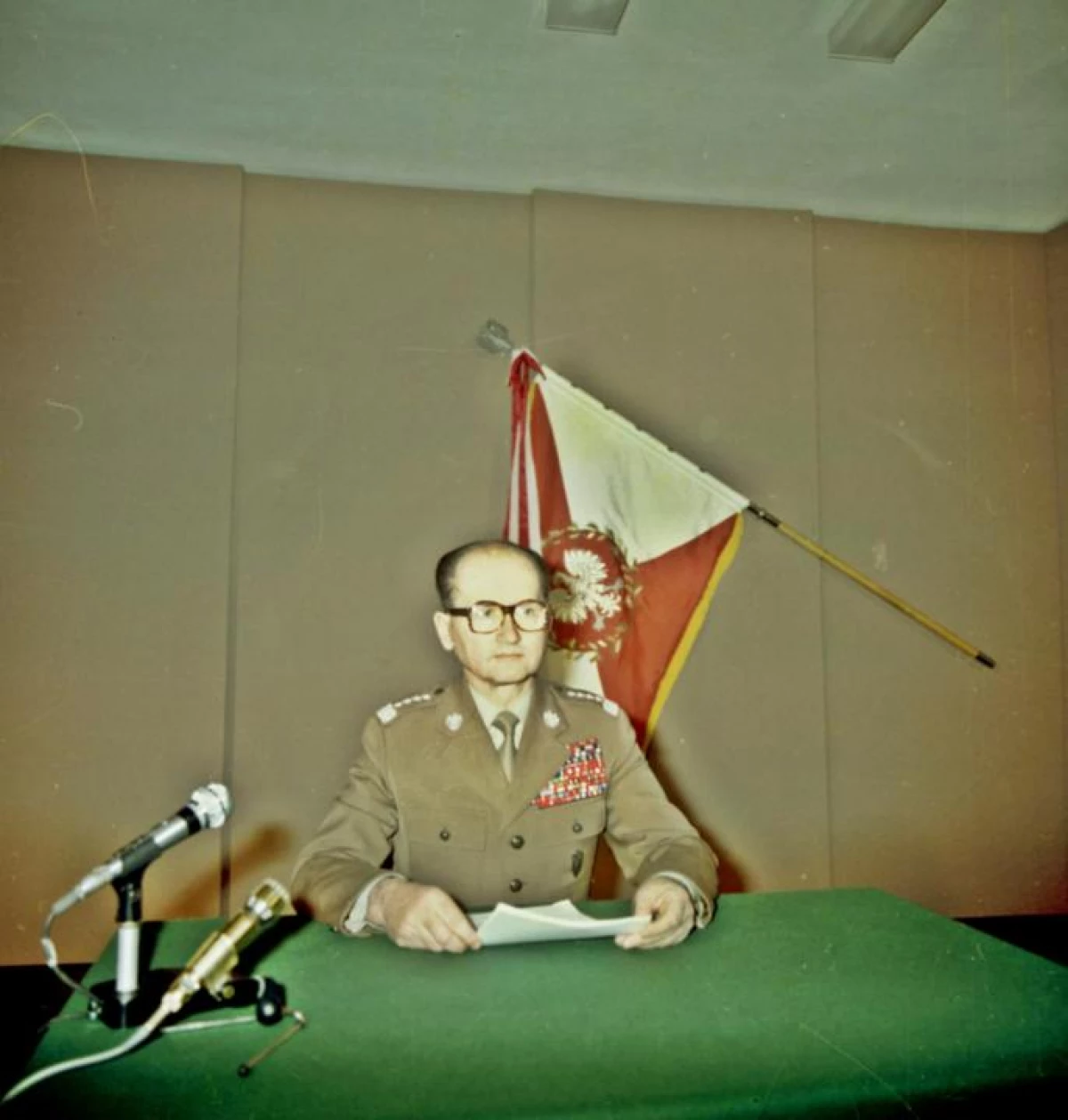
"The state of workers and peasants" caused a crushing blow to workers and peasants, declaring them by counter-revolutionary. Power in the country moved to the Military Council of National Rescue (Wojskowa Rada Ocalenia Narodowego, Wron). In the following speech, Yarazelsky said: "I blame these forces in the desire for confrontation, in the desire to paralyze the authorities, in the spread of hatred, in constant violation of the law, in strike terrorism, in the destruction of the economy, is that these forces have threatened the union and security of the country . I blame these people in the abuse of the confidence of millions of honest people involved in an increasingly dangerous omw.
Subsequently, Wojcih, Yarazelsky insisted that he introduced martial law solely with the aim of preventing the invasion of the troops of the Soviet bloc countries. Today it is doubtful: after decades, no direct evidence of the preparation of the input of the troops could not be found - it is obvious that the martial law was prepared in advance.
The resistance of the people managed to suppress not immediately. Workers took tens of enterprises in Warsaw, Gdansk, Wroclaw and other cities. Usually, the army and Zomo worked like this: the gate of the enterprise pierced the tank, after which the security forces broke into inside, pushing out the factory. In the event of resistance, both at the "Wood" mine in Silesia, Zomo opened fire at miners from machine guns - nine people died. In Gdansk, the demonstration rigidly dispersed - three more sacrifices.
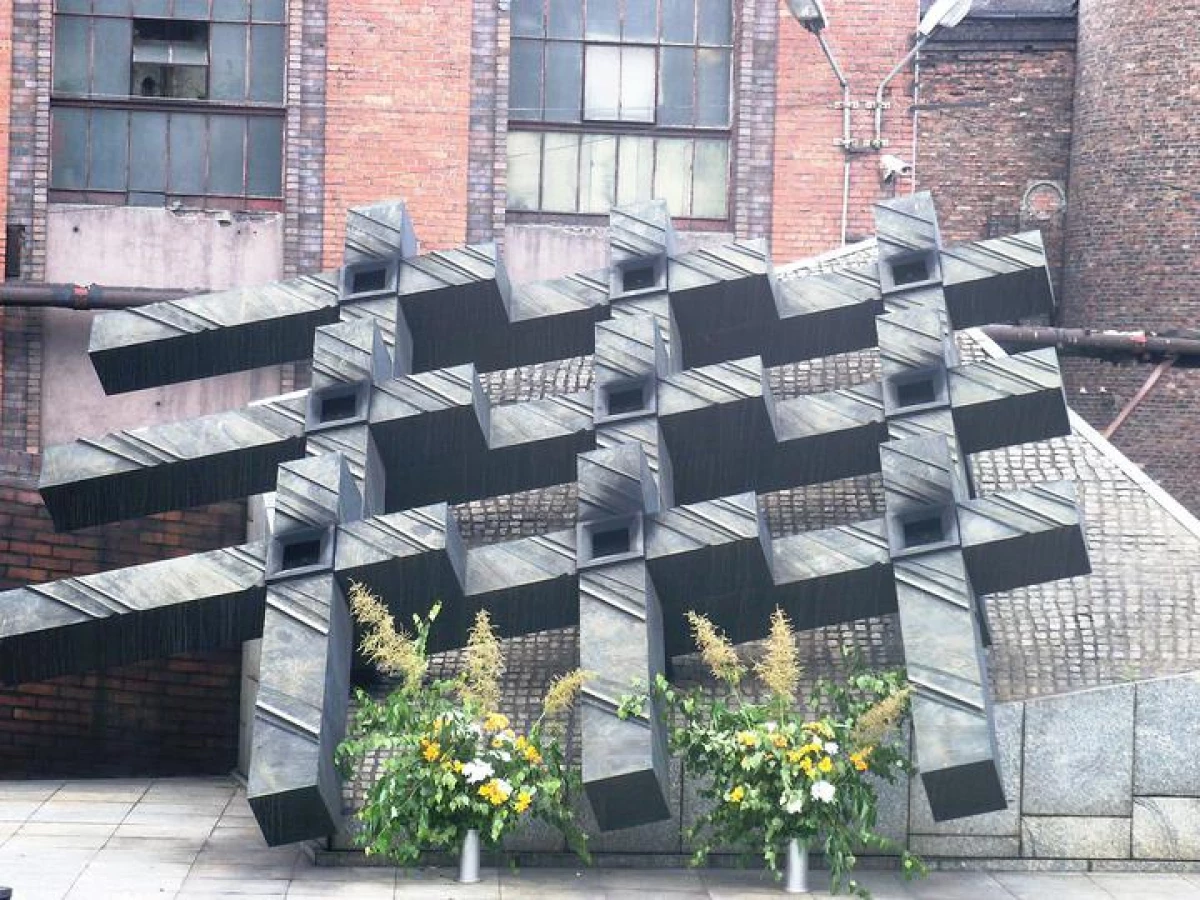
As a result, by the end of the year, trade union resistance managed to suppress. Without centralized leadership, millions of supporters who left underground "solidarity" could not organize effective counteraction. Map of Yarozelsky played and for some time extended the existence of communist Poland.
Poles protested as they could. Shares of solidarity, Italian strikes at work, leaflets and posters, anti-government graffiti. The Wron abbreviation is similar to the word Wrona (Crow), and on the walls were often the inscriptions "Eagle Vorona not to win", "Wron for Don", "Winter Your, Spring Our". Locking graffiti sent special groups.
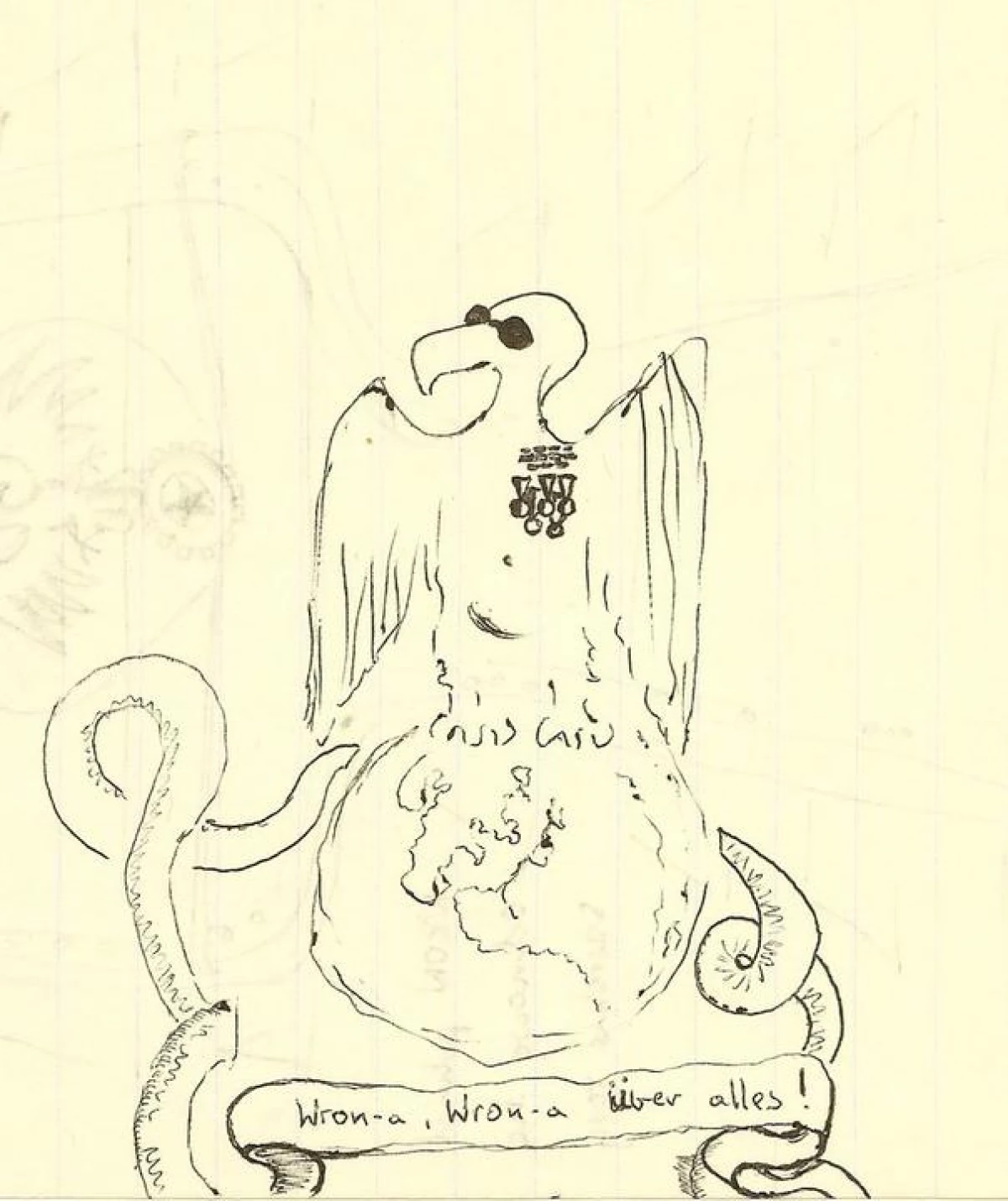
Thus, the "shrimp" thus Poland, Yarazelsky and his surroundings could not "silence" the economy. In February 1982, the price of food increased by 241 percent, by 171 percent - on electricity and heat. The enterprises appointed military commissioners to "strengthen the discipline and labor productivity" - as far as it helped, it is difficult to judge.
Military situation lasted until July 22, 1983, it was worth a life more than a hundred people and did not solve any problem. The Solidarity defeated in the legal field continued to work underground, the trust of the people to the PPP fell to zero, and the economy did not help the economies of the inflexible Wojciech. Nevertheless, PNR has lasted a few more years - almost until the end of the decade. Yazareilsky himself eventually gave power to the same Lehu Valense and lived until 2014. Tut.BY.
